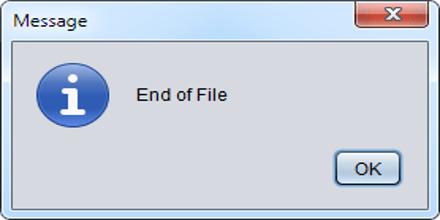End-of-File is a code placed by a computer after a file’s last byte of data. It is either determined when the reader returns null as seen in Java’s BufferedReader, or sometimes people will manually insert an EOF character of their choosing to signal when the file has ended. EOF marks are helpful in data transmission and storage. The actual value of End-of-File is system-dependent and is unequal to any valid character code.
End-of-File
















